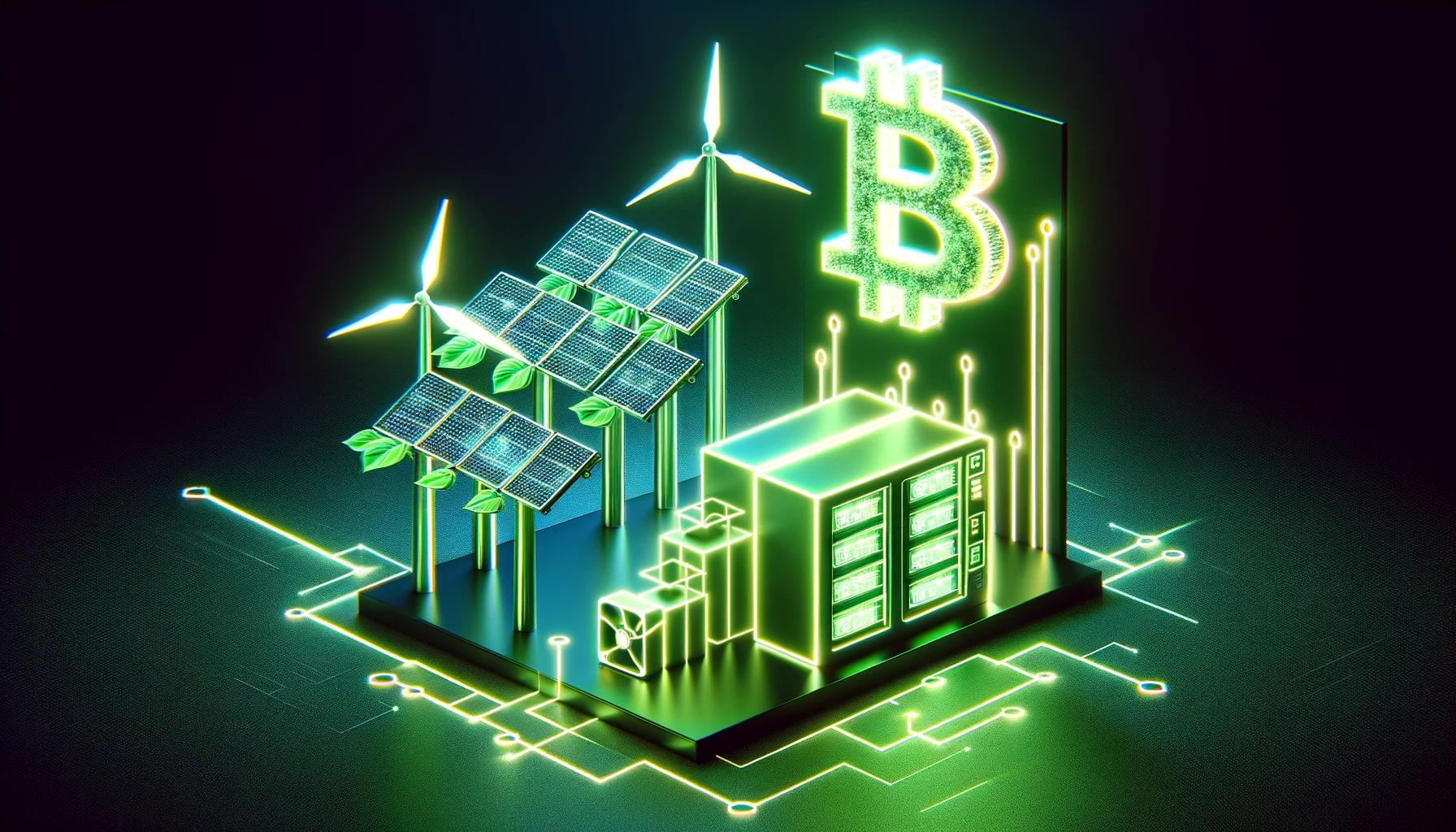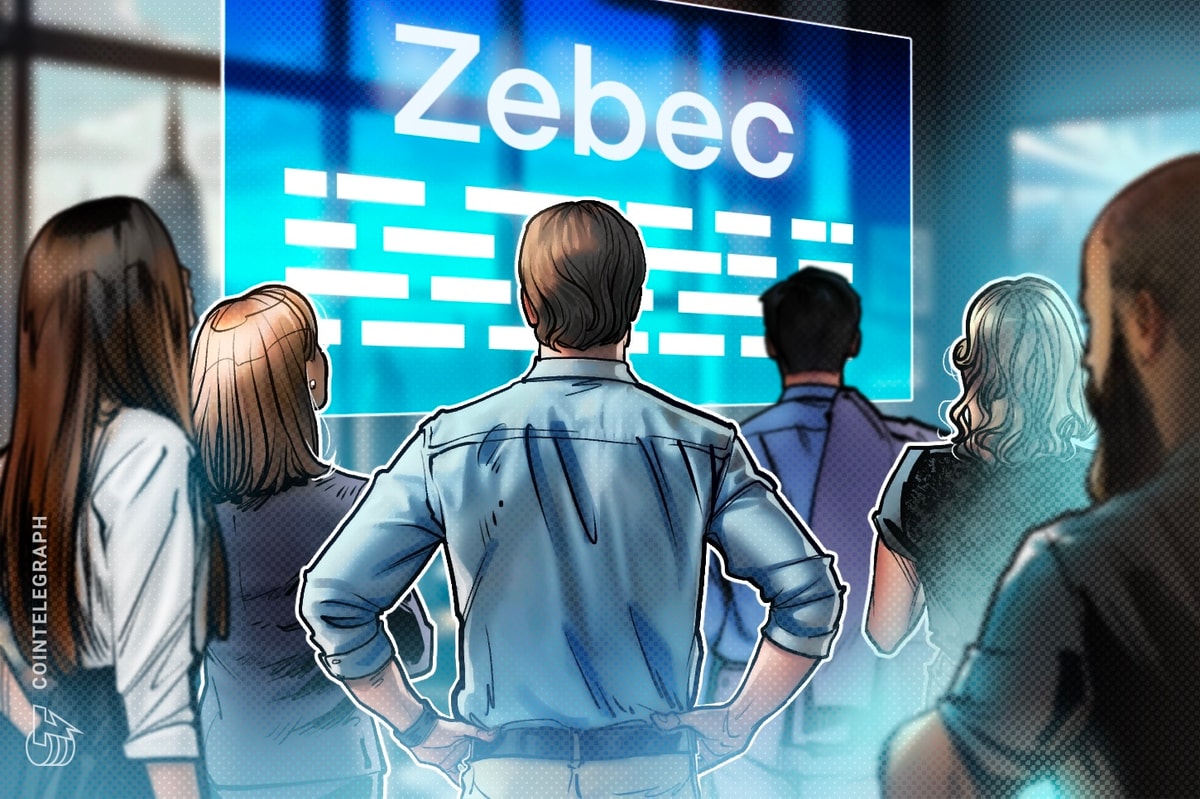
PayPal believes economic incentives can encourage miners to adopt green energy sources.
PayPal is working with partners to provide incentives for Bitcoin miners to reduce their environmental impact.
In an April 22 blog post published on Mirror, a blockchain-based publishing platform, PayPal announced that its Blockchain Research Group teamed up with Energy Web, a web3 energy infrastructure developer, and DMG Blockchain Solutions, a Bitcoin mining firm, to develop and trial an incentive mechanism designed to encourage miners to adopt clean energy sources.
A report outlining PayPal’s Green Mining Initiative notes that the Cambridge Bitcoin Electricity Consumption Index estimated that Bitcoin mining drove 85 million metric tons of carbon dioxide emissions annually as of April 2, 2024. Despite the heavy environmental footprint associated with Bitcoin’s miner ecosystem, PayPal predicts that Bitcoin is unlikely to do away with its Proof of Work consensus mechanism in the future.
“Blockchain networks — specifically proof-of-work (PoW) networks like Bitcoin — can consume large amounts of energy,” PayPal said. “We propose the use of cryptoeconomic incentives to encourage… Bitcoin miners using low-carbon energy sources in their mining operations.”
PayPal said that its research partner, Energy Web, has developed a “clean energy validation platform” providing “proof of sustainability” accreditation to Bitcoin miners embracing low-carbon sources of energy.
The platform issues accreditation dubbed “green keys” to the public addresses of miners verifiably using a significant portion of low-carbon energy sources to power their operations. Miner eligibility is based on a scoring system.
This allows network participants to then earmark a portion of validator rewards for green keyholders exclusively, incentivizing miners to onboard to the platform and adopt clean energy.
“On-chain transactions are preferentially routed to green miners by being broadcasted with low transaction fees, but with some BTC reward ‘locked’ in a multisig payout address,” PayPal said. “Green miners will be incentivized to mine these transactions since they will be the only ones eligible for the additional ‘locked’ BTC reward… Most miners will be disincentivized to process these transactions because of their low transaction fees.”
PayPal said trials have already been conducted in partnership with DMG, with low-fee transactions broadcast to Bitcoin’s mempool during periods of various on-chain volumes. PayPal said that regular miners either dropped or took a long time to validate said transactions, adding that DMG was also able to identify and validate a transaction including a tip green key holders.
“This validated our belief that transactions could be preferentially routed to green miners and that those miners could receive the specified incentive using the proposed mechanism,” PayPal said. “By promoting this transition, this solution aims to support the Bitcoin network’s decarbonization in the long term by financially rewarding miners that
use clean energy.”
The partnership is attracting bullish attention for Energy Web, with its EWT token rallying 16.3% in the past 24 hours, according to CoinGecko.
Environmental concerns over Proof of Work
The news comes as the energy expenditure of Proof of Work networks has emerged as an increasing source of concern amid the growth of cryptocurrency in recent years, with Bitcoin’s ecological footprint estimated to be comparable to the entire countries of Denmark, Chile, and Argentina.
This has attracted condemnation from politicians including U.S. Democratic Senators, international organizations like the International Monetary Fund, and business luminaries such as Elon Musk and Intel CEO, Pat Gelsinger.
Notably, Ethereum’s transition from Proof of Work to Proof of Stake consensus in September 2022 ushered in a more than 99.9% reduction in the network’s energy consumption.
Read More: thedefiant.io








 Bitcoin
Bitcoin  Ethereum
Ethereum  Tether
Tether  XRP
XRP  Solana
Solana  USDC
USDC  Dogecoin
Dogecoin  TRON
TRON  Cardano
Cardano  Lido Staked Ether
Lido Staked Ether  Wrapped Bitcoin
Wrapped Bitcoin  Hyperliquid
Hyperliquid  Wrapped stETH
Wrapped stETH  Sui
Sui  Chainlink
Chainlink  LEO Token
LEO Token  Avalanche
Avalanche  Stellar
Stellar  Bitcoin Cash
Bitcoin Cash  Toncoin
Toncoin  Shiba Inu
Shiba Inu  USDS
USDS  Hedera
Hedera  WETH
WETH  Wrapped eETH
Wrapped eETH  Litecoin
Litecoin  Polkadot
Polkadot  Monero
Monero  Binance Bridged USDT (BNB Smart Chain)
Binance Bridged USDT (BNB Smart Chain)  Ethena USDe
Ethena USDe  Bitget Token
Bitget Token  Pepe
Pepe  Pi Network
Pi Network  Coinbase Wrapped BTC
Coinbase Wrapped BTC  WhiteBIT Coin
WhiteBIT Coin  Aave
Aave  Uniswap
Uniswap  Dai
Dai  Ethena Staked USDe
Ethena Staked USDe  Bittensor
Bittensor  Aptos
Aptos  Cronos
Cronos  OKB
OKB  NEAR Protocol
NEAR Protocol  BlackRock USD Institutional Digital Liquidity Fund
BlackRock USD Institutional Digital Liquidity Fund  Jito Staked SOL
Jito Staked SOL  Internet Computer
Internet Computer  Ethereum Classic
Ethereum Classic  sUSDS
sUSDS